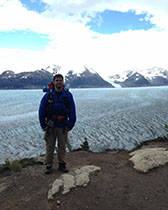Mauricio Oportus Preller
Home Department: Spanish & Portuguese

Mauricio is a Ph.D. candidate in Comparative Literary Studies with a home department in Spanish and Portuguese. He holds a B.A. in Political Science from Pontificia Universidad Católica de Chile and an M.A. in Contemporary Philosophy from Universidad Diego Portales, where he wrote a thesis on allegory and sovereignty in Walter Benjamin’s early thought.
During his time at Northwestern, Mauricio has been awarded the Beiling Wu Prize in Writing (2019) for a paper on the question of justice in Walter Benjamin’s Zur Kritik der Gewalt, as well as a 2022–2023 Franke Fellowship by the Kaplan Institute for the Humanities. His dissertation, “Juridical Fictions: Literary Representations of the Law in the Latin American Modern Fiction (1882–1929)”, reexamines the productive relation of nation and narration in Latin America by uncovering the increasingly critical attitudes of Latin American writers towards state authority, as well as their shifting roles in exposing the fissures and contradictions in nation-building discourses. His research has been supported by the Buffet Institute for Global Affairs through a Dissertation Travel Award, which allowed him to conduct archival research at the Ibero-Amerikanisches Institut in Berlin. His publications include a peer–reviewed article in Hispanic Review (90. 2) on the relation between law and exhibition in Tomás Michelena’s Débora (1884), as well as a Spanish translation of Peter Fenves’ The Messianic Reduction: Walter Benjamin and the Shape of Time(2011), under contract with Universidad Diego Portales Press. In addition to his academic work, Mauricio is also the co-founder and co-host (along with Consuelo Diaz de Valdés) of “Te leíste el texto?”, a podcast in Spanish meant as a general introduction to the canon of political philosophy for non-specialized audiences.
Aside from his academic responsibilities, Mauricio enjoys spending time with his wife, taking care of his dogs, and trekking whenever and wherever possible.
